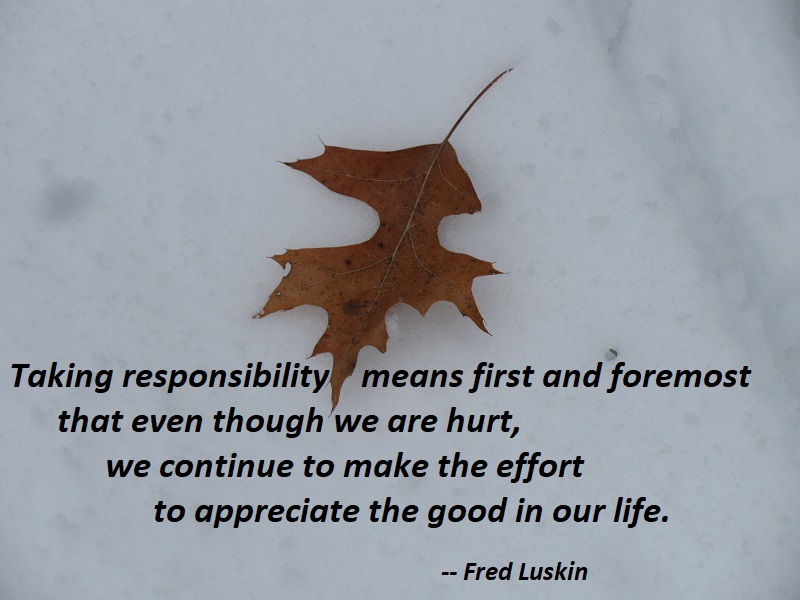
I want to make clear that taking responsibility for how you feel does not mean that what happened is your fault. You did not cause your parents to hurt you or your lover to cheat on you. You did not cause the car to hit you or the illness to strike you. You did not cause your boss to be grouchy nor did you cause the weather to stink on your vacation. While you did not cause these things to happen, you are responsible for how you think, behave, and feel since those experiences occurred. It is your life, and they are your reactions and emotions to manage.
Taking responsibility means first and foremost that even though we are hurt, we continue to make the effort to appreciate the good in our life. When we understand that pain is a normal part of life, we make the effort to keep our hurts in perspective. I challenge the common tendency to feel that our experience of hurt is more real than our ability to feel good. I challenge the tendency to assert that painful experiences are somehow deeper than rapture over the beauty of a sunset or the love we feel for our children.
Many of us are renting more space to rehashing our grievances than focusing on gratitude, love, or appreciation of nature. My central message here is when you bring more positive experiences into your life, your hurts will diminish in importance. In fact, this is the first step to taking responsibility for how you feel and beginning to forgive. If I rent out more and more space in my mind to appreciating my children or the loveliness of a rainy day, there is as a result less space and time for dwelling on the hurts.
— Dr. Fred Luskin, Forgive for Good, p. 111-112
Photo: South Riding, Virginia, March 21, 2018